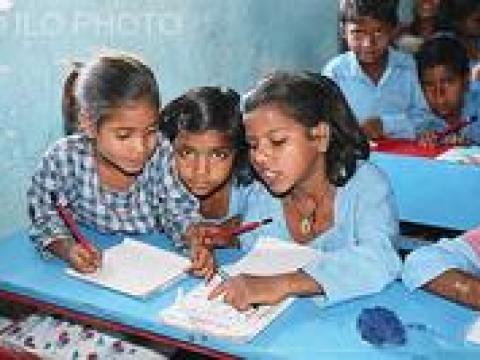World Day Against Child Labour 2008 - 12 June

The ILO has estimated that some 165 million children between the ages of 5 and 14 are involved in child labour. Many of these children work long hours, often in dangerous conditions. This year the World Day against Child Labour will be marked around the world with activities to raise awareness that Education is the right response to child labour. World Scouting, as the largest global youth movement which prides itself on its strong history of non-formal education, is encouraged to get involved and draw attention to the key issues related to Child Labour.
Child labour is closely associated with poverty. Many poor families are unable to afford school fees or other school costs. The family may depend on the contribution that a working child makes to the household’s income, and place more importance on that than on education. And when a family has to make a choice between sending either a boy or girl to school, it is often the girl who loses out.
More than ever today, children need a good quality education and training if they are to acquire the skills necessary to succeed in the labour market. However, in many countries the schools which are accessible to the poor families are under-resourced and inadequate. Poor facilities, over-sized classes, and lack of trained teachers lead to low standards of education.
In the Millennium Development Goals the United Nations and the broader international community set targets of ensuring that by 2015 all boys and girls complete a full course of primary education and that there is gender parity in education. World Scouting, as a dedicated partner of both ILO and the Millennium Campaign, is committed to working towards achieving these goals.
These targets cannot be met unless the factors that generate child labour and prevent poor families from sending children to school are addressed.
An increasing number of joint initiatives between Scout Organizations and ILO Field and Branch Offices are being developed at the local level, in particular in the framework of the SCREAM – Supporting Children’s Rights through Education, the Arts and the Media – programme www.ilo.org/scream.
Picture: © ILO